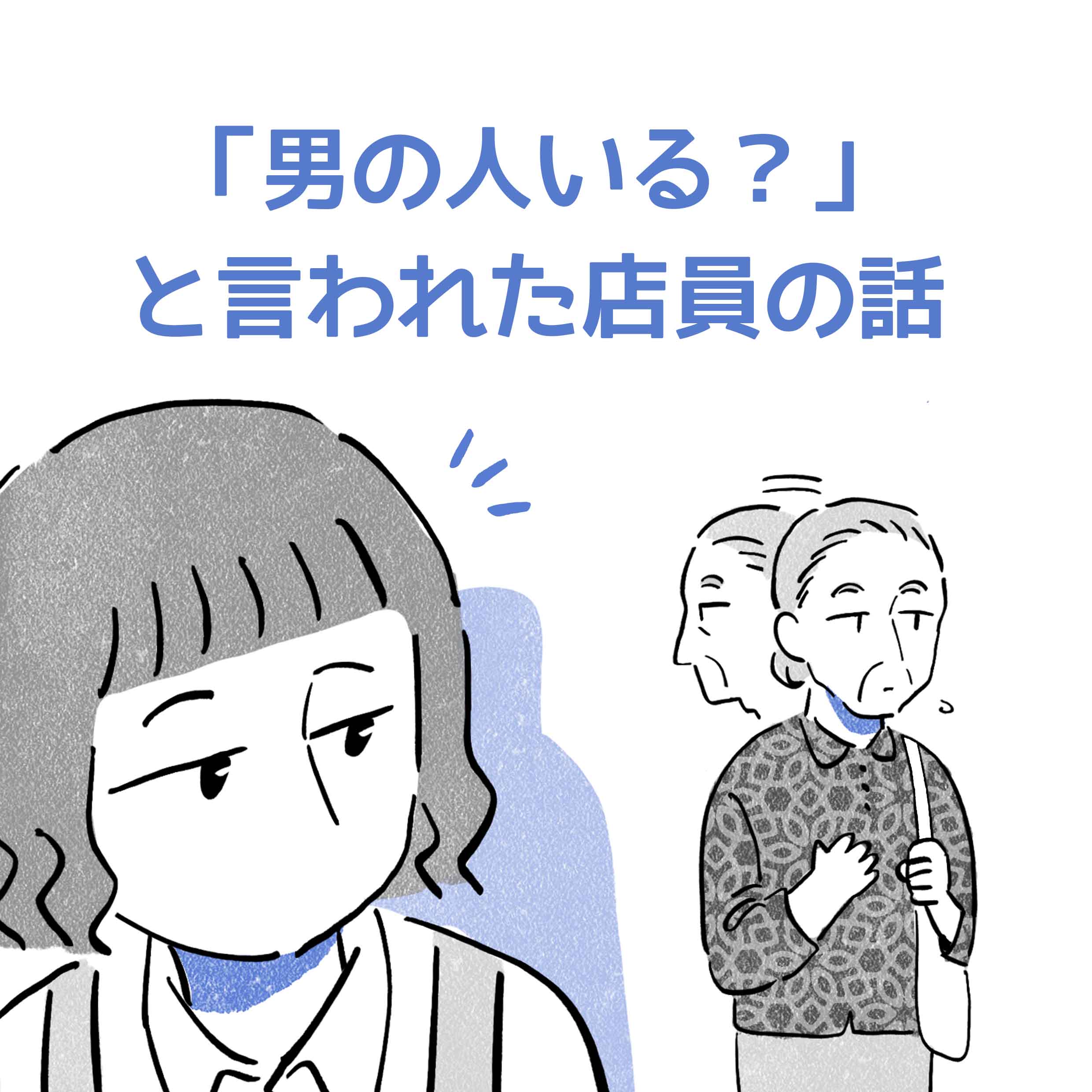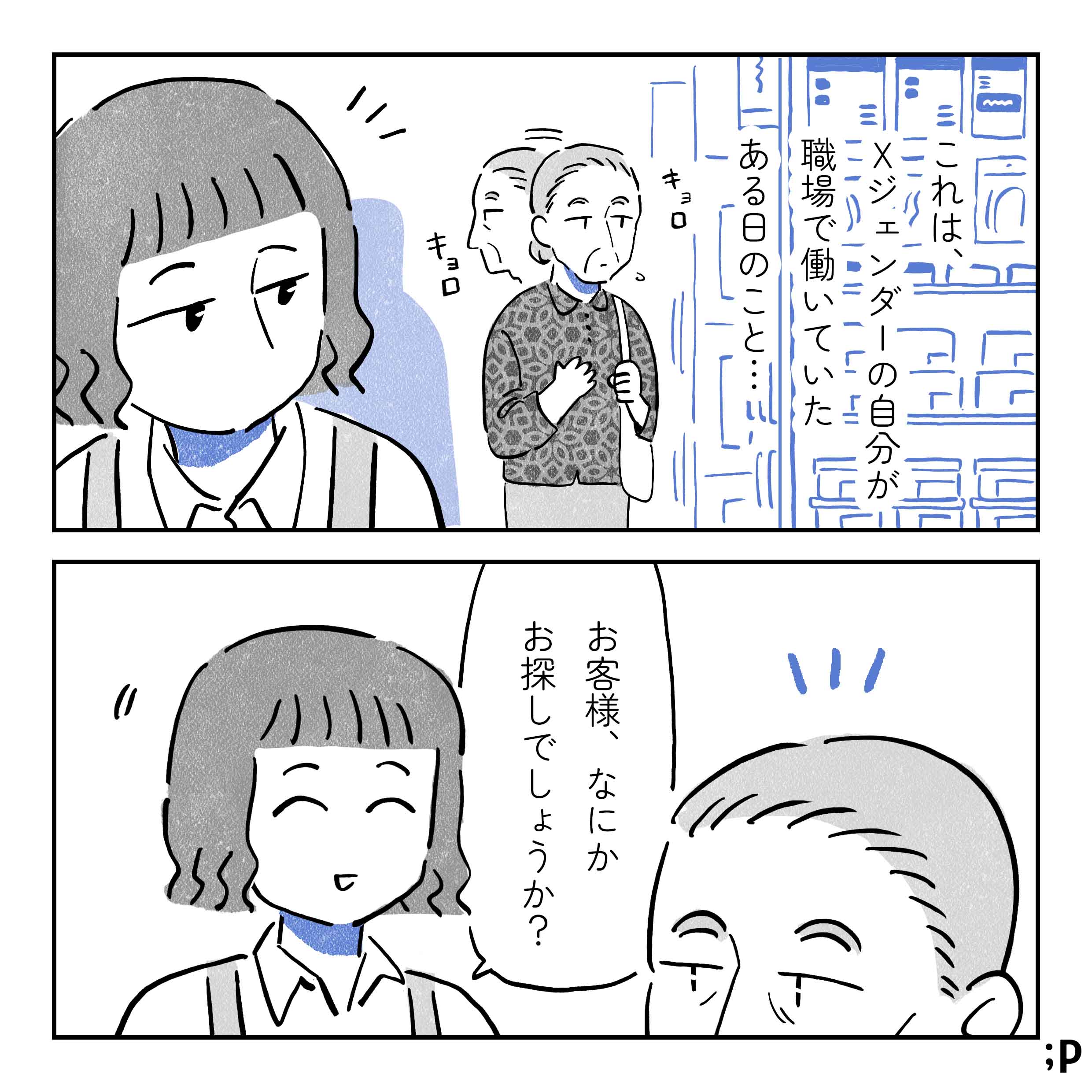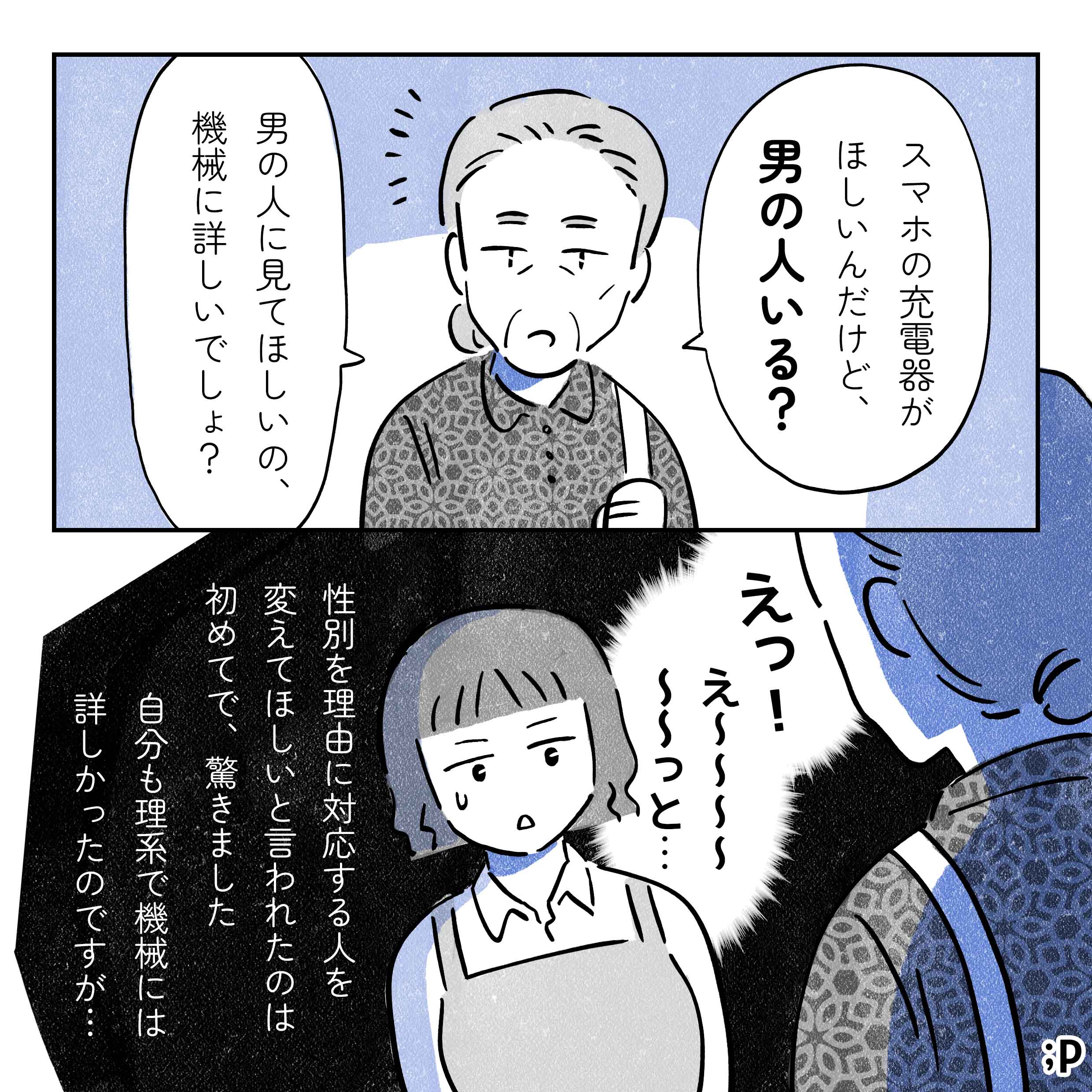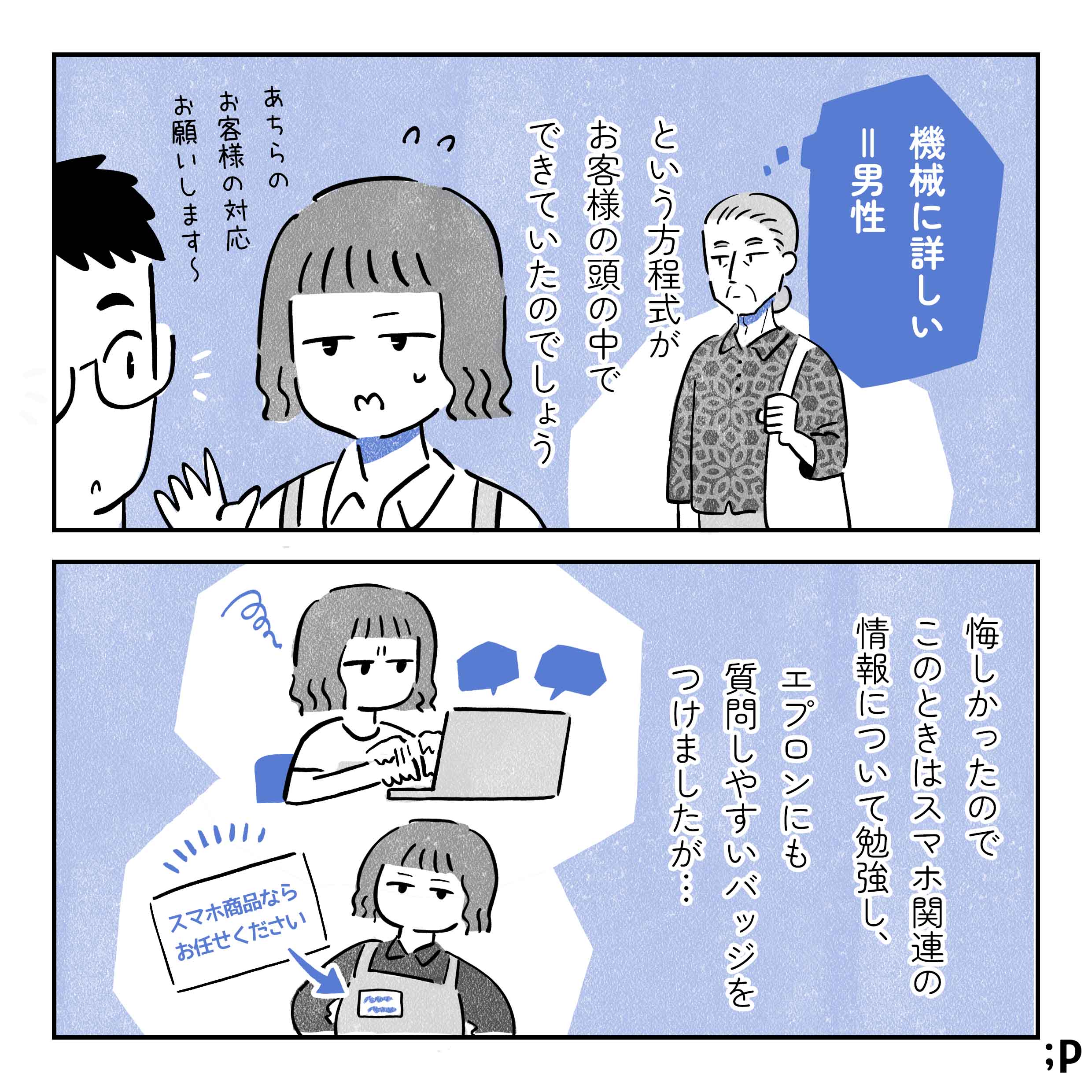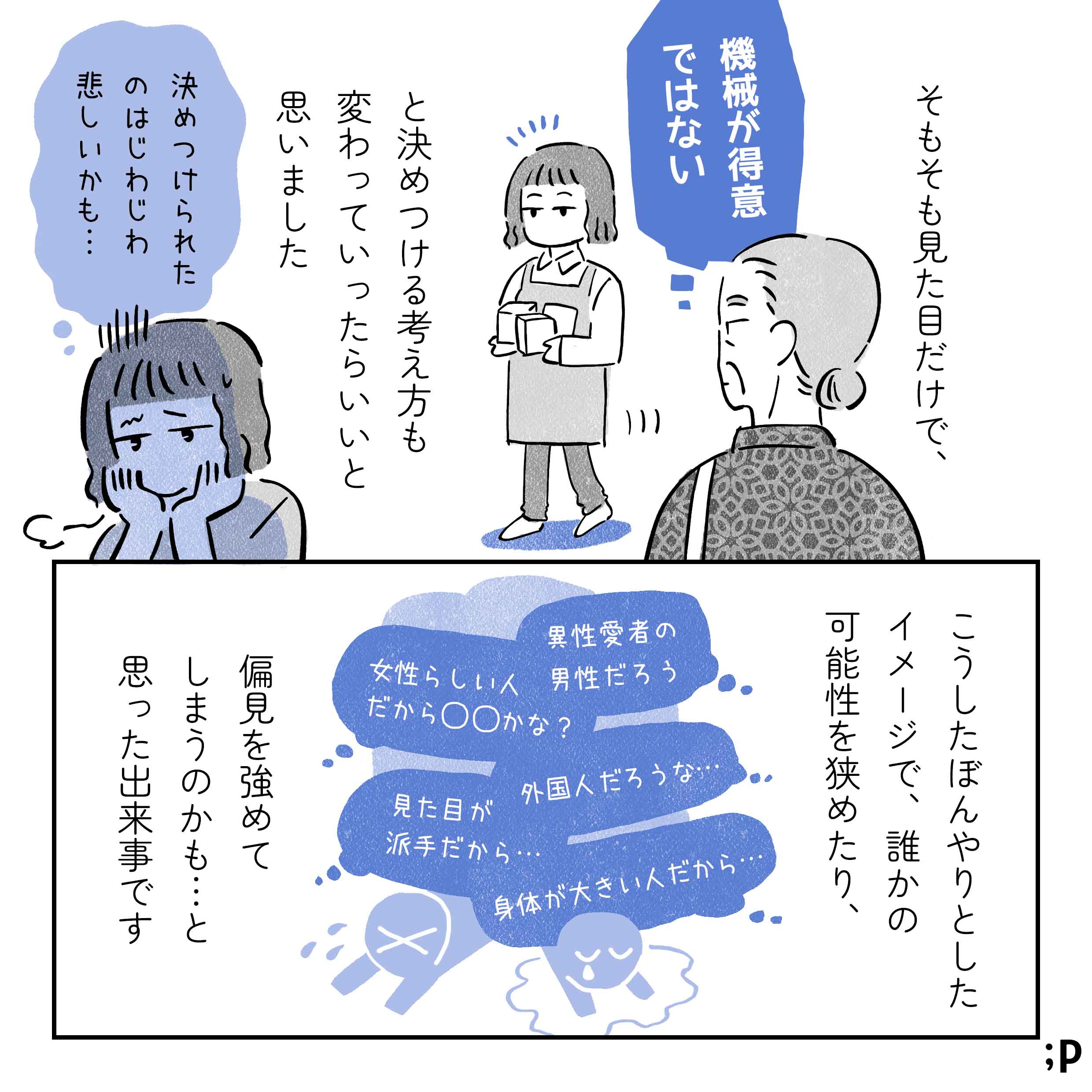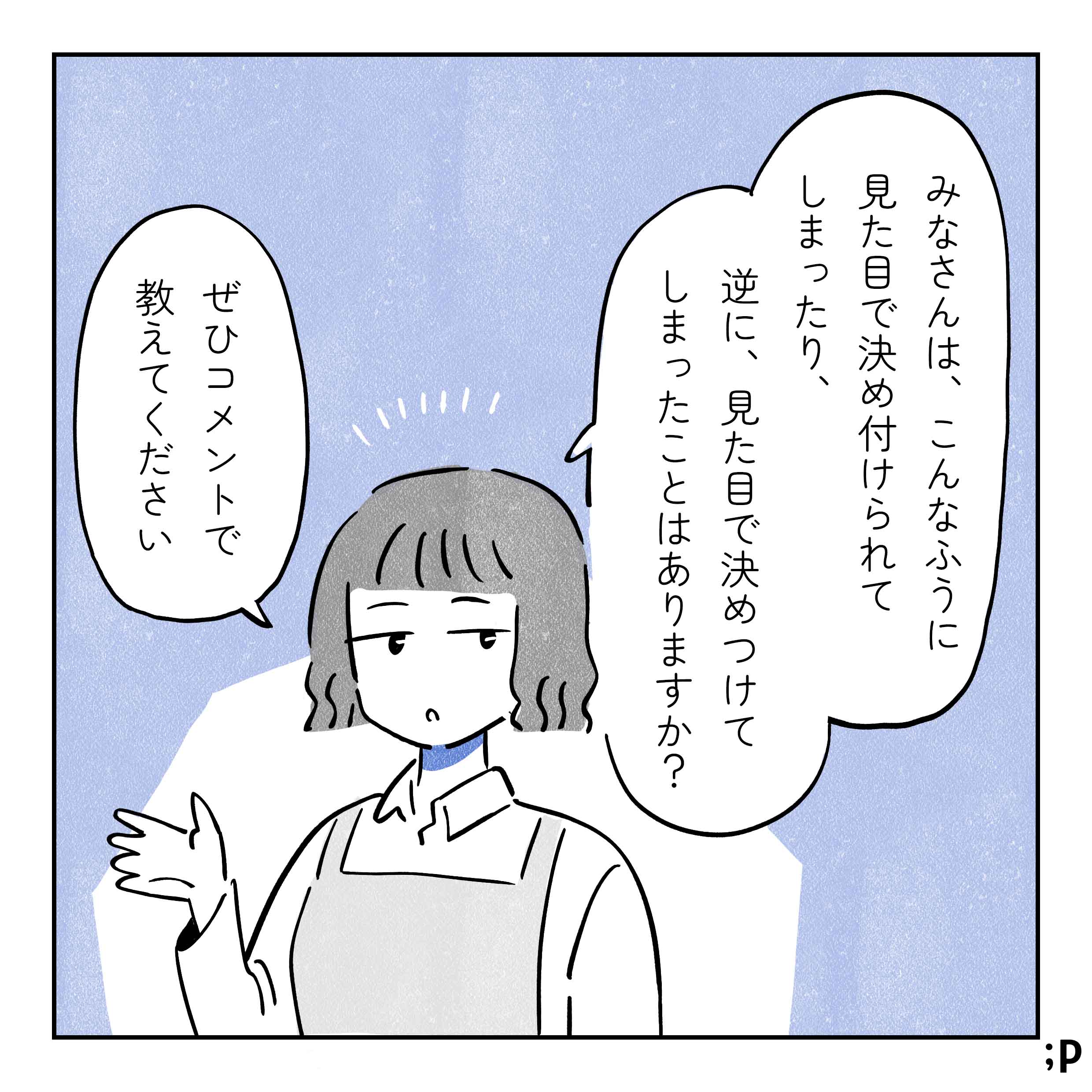【Manga】What Is the Problem with “Men Are Good with Machines”? The Story of a Clerk Who Was Asked, “Is There a Man Here?”
“Men are good with machines, women are bad with machines.”
“Men are science-oriented, women are humanities-oriented.”
“Men are rational, women are emotional.”
Many of you have probably heard these kinds of stereotypes before.
Even today, in a society where people are still often judged by their appearances, regardless of their gender identity or expression, such views remain. In this article, Palettalk introduces a manga describing a story shared by one of our readers, an X-gender individual who was judged to be “bad with machines” simply based on their appearance.
The Issue of Misgendering
The story shared this time comes from an X-gender individual.
X-gender refers to people whose gender identity does not fit within the traditional binary concept of “male or female.” X-gender is a term unique to Japanese-speaking communities, similar to the concept of non-binary in other cultures.
Treating someone in a way that does not align with their self-identified gender (gender identity) is called “misgendering.” For example, treating a transgender man as a woman simply because he was assigned female at birth denies his gender identity and is an act that can harm his sense of self and dignity.
In a society where binary gender norms are still deeply rooted, many non-binary and X-gender individuals experience this kind of misgendering regularly.
Indeed, the society we live in undeniably has norms of “femininity” and “masculinity.” Therefore, when meeting someone, automatically assuming or guessing their gender may not immediately be seen as a discriminatory act.
However, in reality, no one should make assumptions about another person’s gender identity. Yet, the individual who shared this episode was judged as “female (not male)” based solely on their appearance, based on the binary concept of gender.
On top of that, gender biases and stereotypes about what men and women are “supposed to be like” also come into play simultaneously.
The Problem of Gender Bias and Stereotypes
As mentioned earlier, many people have likely experienced the forcing of gender-based stereotypes, such as “men are good with machines” or “women are emotional.”
Society still tends to forcefully categorize everyone according to binary oppositions like:
“rational/emotional”
“humanities-oriented/science-oriented”
Additionally, beliefs like “male brain/female brain,” which lack strong scientific evidence, are still uncritically internalized by many people. Needless to say, there are women who are skilled with machines and men who are emotional.
The individual who shared their story with us is not male, but they are science-oriented and knowledgeable about machines. However, not only were they misgendered as “female,” but they were also subjected to the stereotype that they must be “bad with machines.”
Reader Comments
This manga has received many comments from readers who sympathize with the story. Some readers have had almost identical experiences, while others have faced different kinds of assumptions based on their considered categories.
Here are a few excerpts:
- “There was an elderly lady who didn’t trust her female doctor, so she returned the next day to be examined by a male doctor.”
- “I am a pilot for a Western airline and am often mistaken for a flight attendant solely because of my gender. People sometimes ask, ‘Can a woman fly a plane?’ and are surprised when I say, ‘Yes.’”
- “I’ve been treated as if, ‘You must be inexperienced because you’re young,’ before.”
- “While living outside Asia, it was often assumed that I did ‘not speak English’ just because I am an East Asian-looking woman. I’ve lost count of how many times that has happened.”
Many people are judged based on various factors such as gender, race, profession, age, place of origin, clothing, or hairstyle. At the same time, some readers shared their own experiences of unintentionally stereotyping others without realizing their biases.
- “When I was working in a restaurant, I handed an alcoholic drink to a man and a non-alcoholic drink to a woman, only to find out I got it wrong. The customers, who were a young couple, kindly corrected me, even though I was just a student doing a part-time job. It was really embarrassing. Since then, I’ve tried to avoid making assumptions.”
Everyone has at least some preconceived notions like “this is what such-and-such is like.” Many people have had experiences of being judged based on such assumptions, as well as making judgments about others based on them.
Through the shared stories and comments, we were reminded of the importance of trying to be aware of these unconscious biases and reflecting on them when we make mistakes.
This episode is also discussed on Palettalk’s “Achakocha Radio (あちゃこちゃらじお).” Please tune in to listen.
(Translation: Jennifer Martin)

